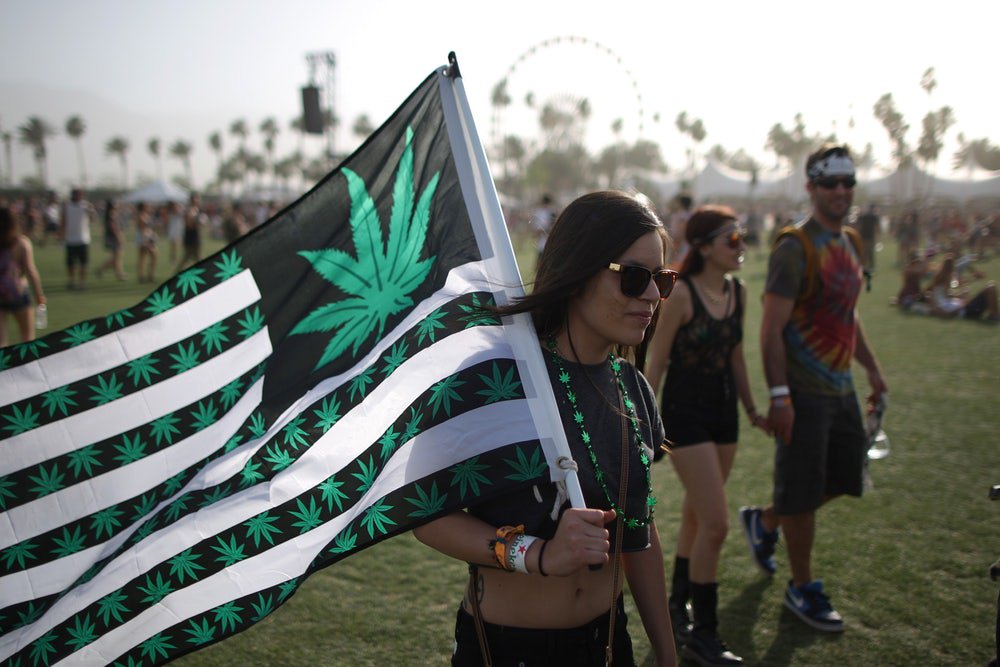The Promise of Legal Pot [View all]

"let your freak flag fly!"
America came close to legalizing marijuana in the 1970s. What went wrong?
BY MAX HOLLERAN
November 27, 2017
Marijuana permeated every aspect of hippie culture in 1960s: Think of Merry Pranksters sitting atop a Volkswagen bus smoking a branch-sized doobie. Allen Ginsberg, Jack Kerouac, and Janis Joplin all smoked marijuana. Joints, supplied by Bob Dylan, “turned on” the Beatles in 1964 at the same time that their music was shifting from the saccharine pop of the 1950s to the sitar-laced grooviness of the 1960s. Marijuana was not just the iconic substance of a decade, like absinthe in 1920s Paris, or tea in Victorian England. Smoking marijuana was also a formative act.
Grass Roots: the Rise and Fall and Rise of Marijuana in America by Emily Dufton, a new history of the fight to legalize marijuana, is geared toward Americans for whom marijuana increasingly means more than hippie culture, or the African American culture around jazz music before it. The anti-conformist culture lives on, but supplemented by a whole range of medical, therapeutic and other uses. Masseuses from Seattle to Denver rub cannabis oil on the achy muscles of their patients. Books like Grow Your Own and Herb offer directions on cooking everything from apple pie to pasta to granola using cannabis. Americans may now walk by medical marijuana dispensaries on their streets and encounter full legalization initiatives on their ballots. Dufton’s book provocatively asks (and answers) the question: Why did this take so long?
The short answer is that marijuana was almost legalized by Generation 68ers who had copiously sampled it in places like Haight-Ashbury and Greenwich Village. It was decriminalized in many states in the mid-1970s—even in Mississippi, South Dakota, and other states not known for their counterculture scenes. Marijuana legalization was supported by a variety of social movements with very different claims to moral legitimacy. First, hippies advocated for legal pot because it was going to change society and “turn people on.” Everyone was encouraged to smoke as well as experiment with other drugs, including substances such as LSD and cocaine, which were not considered inordinately risky.
The focus of Grass Roots is how that legalization movement was subsequently challenged by another kind of activist group: concerned parents, who wrestled away government attention from decriminalization efforts and advocated for protecting children. Dufton shows that these activists were not, initially, conservatives scandalized by their kids’ long hair and electric guitar music. They were often progressive community activists who had supported civil rights and were concerned about how adolescent marijuana use would tear apart young people’s lives, creating long-term health affects and leading to harder drugs. The efforts of these groups were gustily taken up by the zero-tolerance Reagan administration but were also distorted through the professionalization of the War on Drugs—which was left to law enforcement with little patience for community building. This heavy-handed approach continued until the late 1990s when the Just Say No status quo was finally challenged by social justice initiatives concerned with mass incarceration.
continues...
https://newrepublic.com/article/145979/promise-legal-pot
